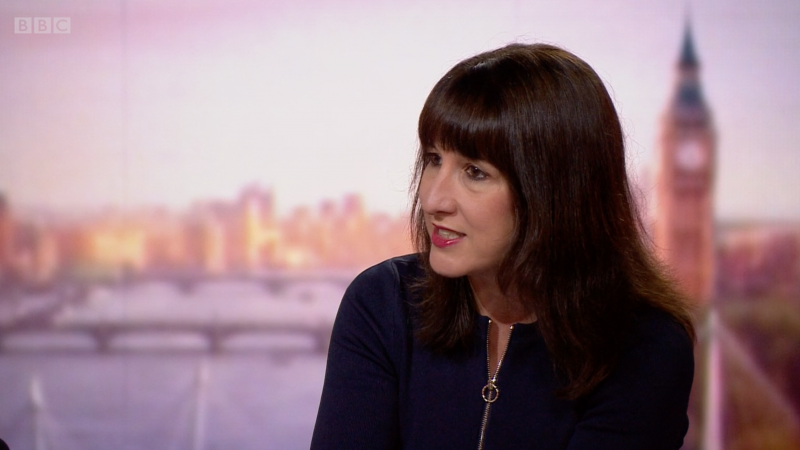
Rachel Reeves has declared that the autumn statement needs to deliver “fairer choices for working people” and a “proper plan for growth” ahead of Jeremy Hunt’s long-awaited fiscal statement on Thursday.
The Chancellor reiterated on Sunday that there would be “very difficult decisions” to be made in the statement, telling Sky News that everyone will be paying “a bit more tax” and warning of cuts to public spending.
Commenting ahead of the statement, the Shadow Chancellor said: “Britain has so much potential, but we are falling behind on the global stage, while mortgages, food and energy costs all go up and up.
“The country is being held back by 12 years of Tory economic failure and wasted opportunities, and working people are paying the price. What Britain needs in the autumn statement today are fairer choices for working people and a proper plan for growth.
“That’s why Labour has a long-term plan to get our economy growing again – powered by the talent and effort of millions of working people and thousands of businesses.
“It will be fairer, greener and more dynamic. Labour’s green prosperity plan, our modern industrial strategy and our active partnership with business will get our economy firing on all cylinders.”
The Chancellor will reportedly set out a package of tax rises worth £25bn in Thursday’s statement along with spending cuts of £35bn. It has been rumoured that he will announce a two-year extension of the freeze on income tax thresholds.
There have been reports that the Chancellor may also lower the threshold for the 45p tax rate from £150,000 to £125,000. His predecessor controversially proposed to scrap the top rate of tax all together.
Other rumoured measures include increasing the windfall tax on oil and gas company profits from 25% to 35% and extending it by two years until 2028 and lifting the requirement for local authorities to hold referendums if they want to increase council tax bills by more than 2.99%.
The fiscal statement was initially due to be delivered on October 31st by then Chancellor Kwasi Kwarteng but was pushed back by Hunt after he succeeded Kwarteng as Chancellor last month.
The plan was expected to be used by Kwarteng to outline how the Conservatives intended to fund the controversial tax cuts set out in then Prime Minister Liz Truss’ ‘mini-Budget’.
But Kwarteng was sacked as Chancellor in October amid the ongoing economic fallout that followed the mini-Budget, which saw the pound crash to its lowest level to date against the dollar and government borrowing costs soar.
Hunt announced following his appointment as Chancellor that the government would be reversing “almost all” the tax measures unveiled in the mini-Budget.
Keir Starmer unveiled Labour’s green prosperity plan ahead of the party’s annual conference in September, promising to turn the UK into a “clean energy superpower” and end the use of fossil fuels in the UK’s power system.
The Labour leader said the party’s proposals would “drive jobs, tackle the cost of living and protect our home for future generations by tackling the climate crisis”.




More from LabourList
‘Council Tax shouldn’t punish those who have the least or those we owe the most’
Two-thirds of Labour members say government has made too many policy U-turns, poll reveals
‘Two states, one future: five steps on the path to peace for Israelis and Palestinians’